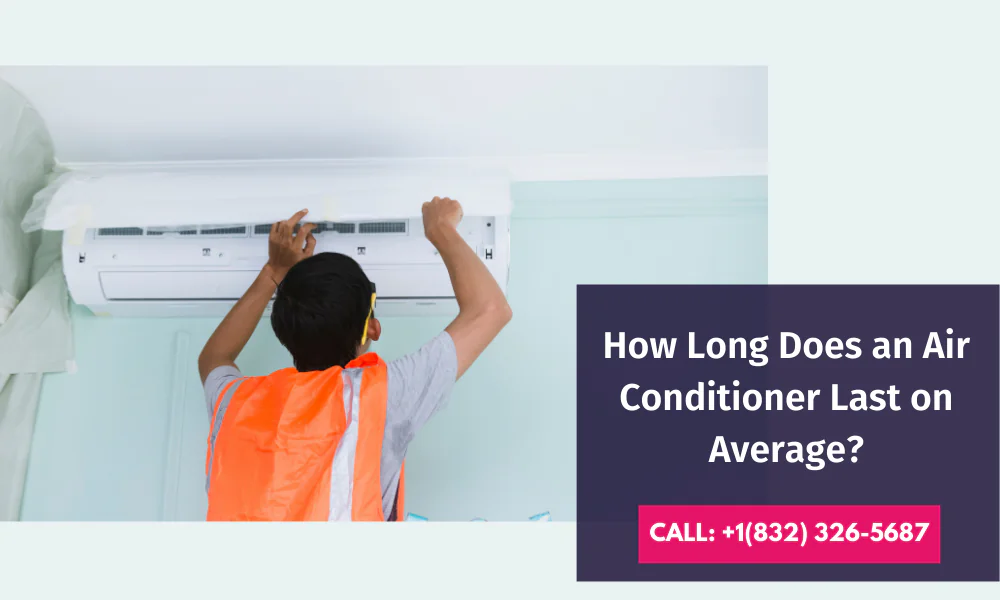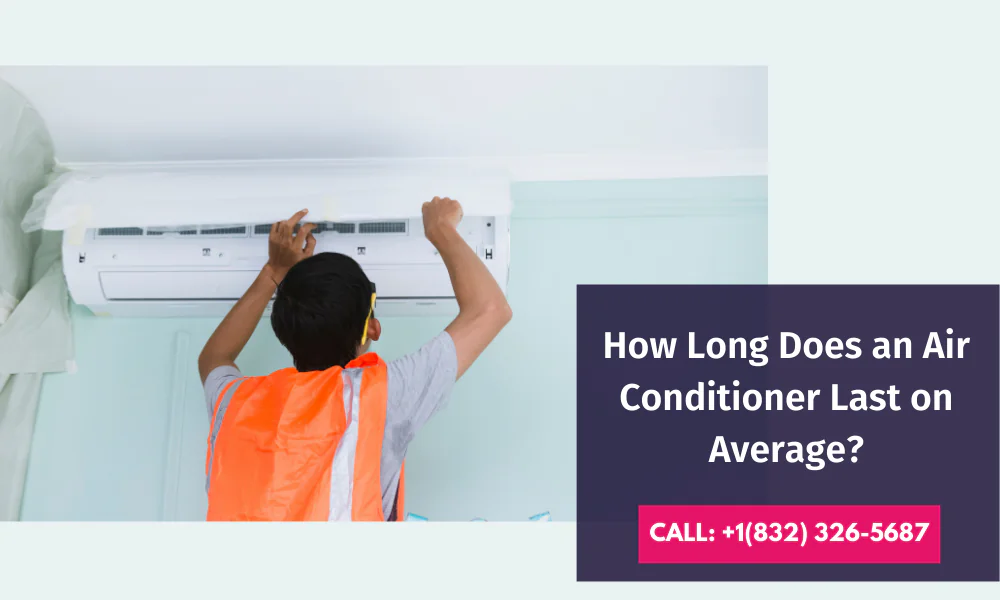Whether you’re thinking about AC maintenance or considering a new unit, you’ve probably come across the topic, “how long do air conditioners last?” It’s heartbreaking to find that your comfort companion has a finite lifespan and won’t live forever.
When an air conditioner reaches the end of its useful life, it will break down more frequently and use more energy than is required. Air conditioners can last anywhere from 10 to 15 years, depending on how well they are maintained. Regular maintenance and other tactics can help your air conditioner last longer.
Even the most well-maintained HVAC systems will ultimately reach the end of their useful life.
This is why it’s critical to understand how long air conditioners last, what factors influence their lifespan, and how to determine when it’s time to replace the entire system.
The Factors That Influence the Life of an Air Conditioner
The longevity of an air conditioner is determined by a variety of factors. The following is a list of the five most prevalent elements that influence its lifespan:

1. The Size of Your Air Conditioner
Have you ever purchased an air conditioner without considering its size? This is an issue that is usually overlooked, but it can have a significant impact on the longevity of your HVAC equipment.
An HVAC unit that is larger than required will have short cycles, which means it will switch on and off frequently. Because the cooling/heating demands are addressed too quickly, it has short cycles.
To cool or heat your home, a small unit will have to run for a lengthy time, potentially overheating its components.
As a result, an HVAC unit that isn’t the correct size is overworked. In the long run, this will shorten its longevity.
2. Air Conditioner Maintenance
If you want to extend the life of your air conditioner, you should never overlook its maintenance. Ignoring air conditioner maintenance can lead to clogged filters, a dirty condenser, and a clogged drain pan.
Condensers that are dirty draw more energy, which can be problematic for your air conditioner. Dirty air filters can reduce airflow, making your system work harder to cool the house and, as a result, shortening its lifespan.
An annual inspection ensures that filters are not clogged, ductwork insulation is properly sealed, and the condenser is clean. Regular tune-ups can help to avoid frequent breakdowns and pricey repairs.
3. Thermostat Setting & Placement
Have you ever considered that the settings on your smart thermostat or smart AC controller for a ductless mini-split unit could affect the air conditioner’s lifespan?
Changing the thermostat setting regularly or keeping the same temperature throughout the year puts a strain on your air conditioner.
Changing the temperature setting frequently causes your machine to stop and start too quickly, increasing wear and tear over time.
The temperature in your home should be adjusted according to the season and time of day. For example, you cannot maintain the same temperature while you are away during the day or at night when the temperature outdoors frequently declines. You may use a smart thermostat to automate the optimum temperature possible while saving energy and lowering the burden on your air conditioner by setting schedules or modes like Comfy.
4. Air Conditioner Installation
The quality of your air conditioner’s installation can influence how long it lasts.
If your unit was not installed by a licensed HVAC professional, it may cause you problems in the future. This isn’t to say you can’t handle it yourself, especially with ductless units, as long as you make sure the wiring is in good shape and the area is well insulated.
Installing an air conditioner in a poorly insulated room would make the unit work harder, overstressing it and shortening its lifespan. If the refrigerant lines connecting your unit’s outdoor and indoor units are overly long, they will disrupt the cooling cycle and place undue strain on the compressor. If you have a ducted system, double-check that the ducts are properly sealed, that there are no cracks, and that the venting system is functioning properly.
5. Usage Patterns of Air Conditioners
When you leave your air conditioner on all day and night, it suffers from additional wear and tears as a result of the constant use. As a result, its average life cycle shortens. It’s best to just turn on your air conditioner when necessary. When you use smart air conditioning, on the other hand, you can run your unit all day long and have it turn off automatically when your desired room temperature is reached.
Signs That Your Air Conditioner Is Nearing the End of Its Service Life
Now that you know how long AC last and what you can do to extend their life, you need to know when it’s time to say goodbye.
1. Your Energy Costs Have Increased
An HVAC unit that has reached the end of its useful life will no longer be energy efficient. The SEER value of an air conditioner decreases as it gets older. The seasonal energy efficiency ratio (SEER) is a measurement of an HVAC unit’s maximum efficiency. As the air conditioner draws more power, the efficiency decreases, resulting in a rise in expenses.
If you observe a sudden increase in your costs and can’t pinpoint the cause other possibilities have been ruled out, it could be related to the age of your air conditioner.
It’s preferable to hire an expert to perform a comprehensive inspection of your unit.
2. Humidity in Your Home Is Too High
Your air conditioner works by absorbing warm air, eliminating moisture, cooling it, and returning it to your home.
It won’t be able to take the increased strain of excessive humidity in the summers as it ages. The air conditioner is rendered useless due to the high humidity, which effectively cancels out the cooling effect.
3. Your AC Requires Repair Every Now And Then
When air conditioners have reached the end of their useful life, they frequently break down.
So, the next time you call an expert, ask them to examine your air conditioner’s overall health. Consider letting it go if it turns out that it will require more expensive repairs shortly.



0 Comments